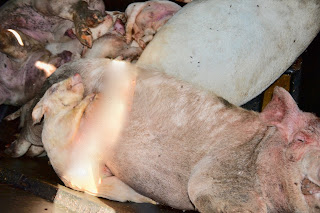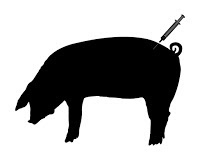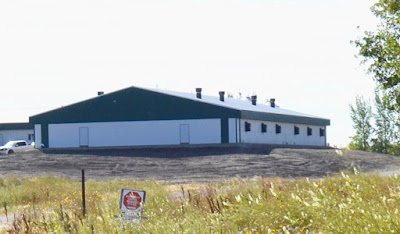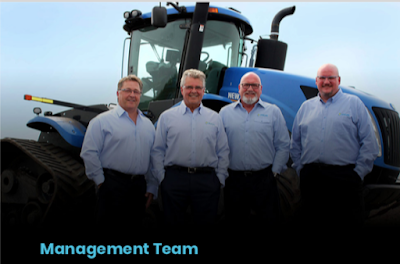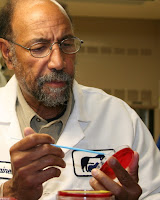Despite long-standing and widespread warnings of the dangers, hog producers on the Canadian prairies were still feeding more antibiotics to their pigs in 2018 than they did the year before. (Latest figures available.)

by Larry Powell (Updated - Mar. 5th, 2021) A Canadian Pork Council photo. In 2019, an elite panel of experts - The Council of Canadian Academies - confirmed that thousands of Canadians were already dying each year of "antimicrobial resistance (AMR)." And, with that resistance still growing, up to 400 thousand will likely die of it by mid-century. It calls the problem, “a serious existential threat.” And, if anyone needs more convincing, here's how Canada's own Chief Public Health Officer puts it. " Left unchecked, there's risk of losing these medications as an essential life-saving treatment. It's estimated that antibiotic-resistant infections could cause 10 million deaths a year, globally by 2050. This is more than the current annual worldwide deaths from cancer." AMR happens when too many antibiotics are given (when they're not needed), not only to people, but mostly to livestock (domestic animals raised for food), like cattle, pigs

